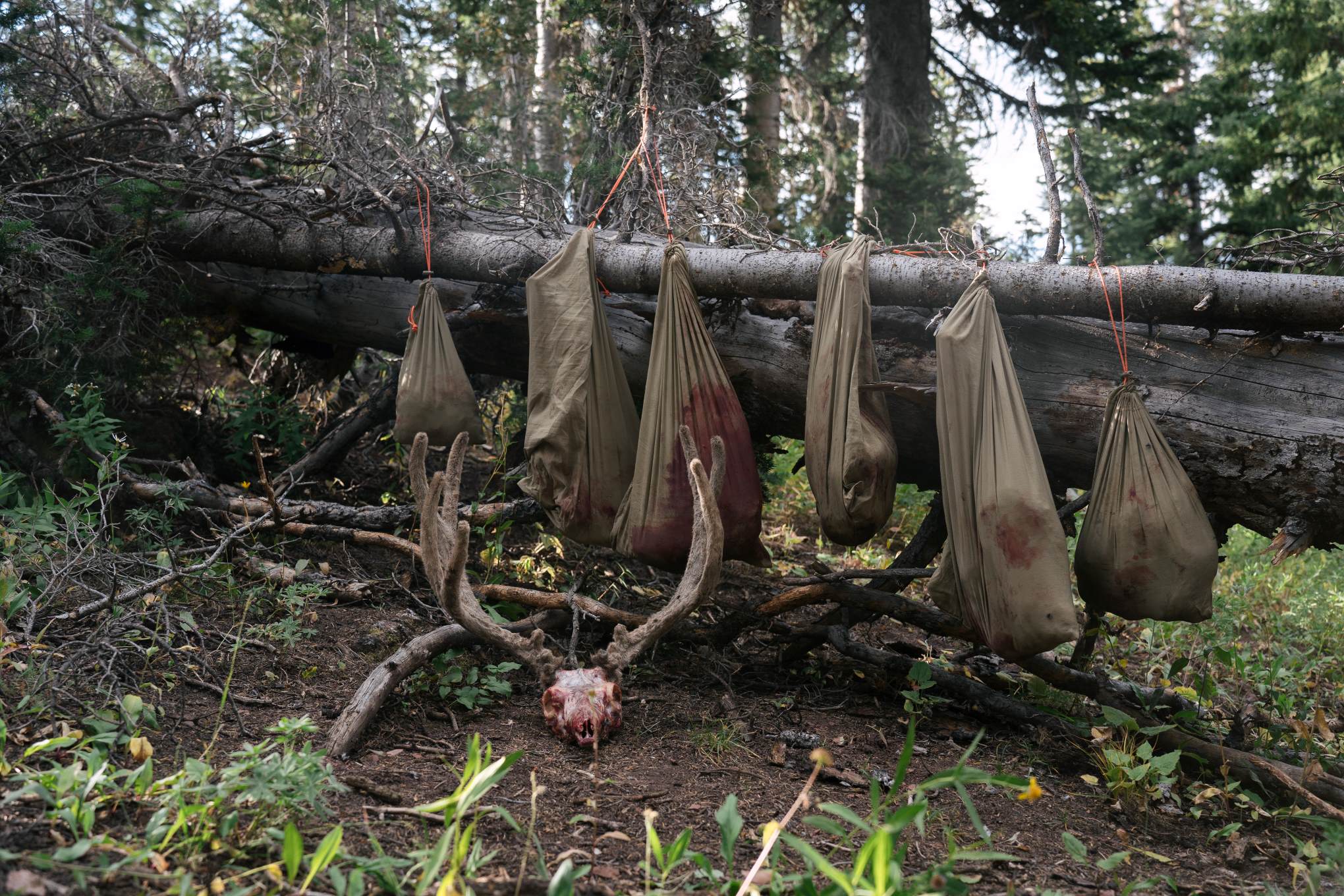One of the biggest misconceptions about wild game is that it’s destined to taste “gamey.” The truth is, properly handled game meat can be clean, mild, and downright delicious. The key lies in how you care for the meat from the moment of the shot until it hits the plate.
At Kifaru, we’re passionate about the field-to-table process. Here’s how to make sure your hard-earned wild game tastes the way it should.
Quick, Clean Field Dressing
The faster you can cool down the animal, the better. A gut-shot animal or one left to sit in warm temperatures will develop off-flavors fast. Get the hide off quickly, open up the body cavity to release heat, and remove internal organs to prevent spoilage. Every minute matters.
Keep the Meat Clean
Dirt, hair, and debris are a surefire way to ruin flavor. Using a sharp, clean knife and taking the time to keep your work area tidy goes a long way. This is where game bags become essential.
Why game bags matter:
- They act as a barrier between your meat and the outside world, keeping dust, leaves, and hair out.
- They help prevent insect contamination while still allowing airflow to cool the meat.
- High-quality bags like Kifaru Game Bags are durable, reusable, and designed specifically for backcountry hunts.
When you’ve packed out an elk quarter miles from the trailhead, the last thing you want is dirt or flies compromising your hard work. Game bags aren’t optional, they’re insurance for quality meat.
Temperature Control
Spoilage bacteria thrive in warmth. Ideally, you want your meat to stay below 40°F as soon as possible. Hang quarters in the shade with good airflow, use creeks or snowbanks to help with cooling (while keeping the meat dry in bags), and never leave meat piled up where heat gets trapped.
Trim and Age Properly
Back at camp or at home, trimming away bloodshot meat, silver skin, and excess fat reduces strong flavors. A short aging period under controlled, cool conditions can tenderize meat and mellow flavors. Just don’t let it go too long without the right environment, or you’ll undo your hard work.
Cooking Tips to Reduce “Gamey” Flavor
Even when your field care is perfect, a few cooking tricks can help make your wild game shine:
- Soak in buttermilk or saltwater: A short soak can draw out excess blood, which often contributes to stronger flavors.
- Use marinades: Acidic bases like lemon juice, vinegar, or wine help break down tougher fibers and mellow flavors.
- Don’t overcook: Most game meats are very lean, which means they dry out fast. Cook to medium-rare or medium for the best flavor and texture.
- Pair with herbs and aromatics: Rosemary, thyme, garlic, and juniper berries are classic choices that complement—not mask—the natural flavors of wild game.
- Grind strategically: For stronger cuts, grinding into burger or sausage with a little added fat can make them more versatile and palatable.
Respect the Meat
Game meat is the ultimate reward of a successful hunt. Treat it with the same respect you’d expect from a butcher handling prime beef. The time you put in during the field care process will pay off on the dinner table.
The Bottom Line
Wild game doesn’t have to taste gamey. In fact, it shouldn’t. If it does, it’s usually a sign of poor handling, not the animal itself. From the first cut to the last bite, the tools and habits you choose matter. Game bags are one of the simplest, most effective investments you can make.
Kifaru builds gear designed for hunters who care about every step of the hunt, from the backcountry packout to the dinner table. Don’t let avoidable mistakes ruin your harvest. Protect your meat, protect your hunt, and elevate the way you experience wild game.


Share:
Bear Hunting Gear List Spring 2025 | KIFARU